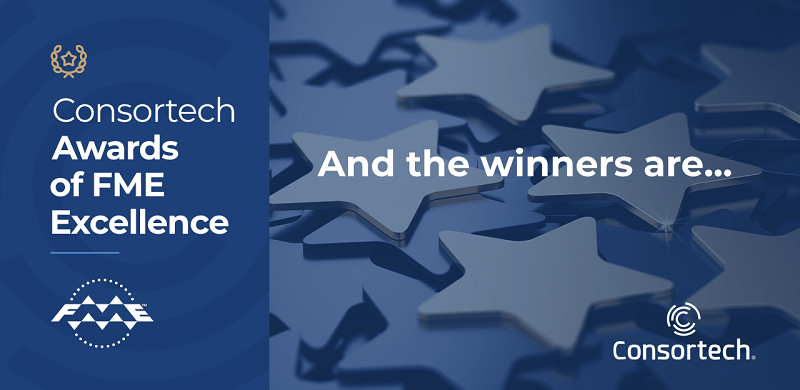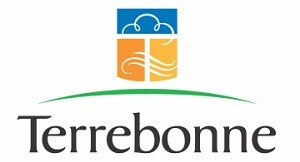The winners of the 2021 Consortech Awards of FME Excellence were announced Wednesday during a very special edition of the FME World Fair. The record number of projects submitted this year is a testament to the FME community’s impressive vitality and creativity.
Faced with some incredibly tough decisions, our jury members had no choice but to give out special mentions to honour projects that brought something new and fresh to the table. Even with clear selection criteria from the start, it all came down to just a few points in each of the categories. Without further ado, here are this year’s award recipients!
Best Small Efficiency-Boosting Project
Winner: City of Sacramento, California
Ryan Kirkham and Krystal Phaneuf’s project used FME, Collector and ArcGIS Online to rationalize and automate the management of water quality samples. The jury loved the simplicity of the concept behind the two bidirectional workspaces between Collector and the internal database (LIMS). Although the project’s technology is not perfect in terms of accessing information outside of the City’s IT environment, the jury believes the winning project in this category can serve as an inspiration to many organizations looking for simple but effective ways to rationalize their field information collection processes.
Special mention: City of Victoriaville, Quebec
Daniel Alvarez used FME to integrate the City’s multiple systems into the GIS database in order to publish an interactive map that can be used by residents and other stakeholders to view information about zoning and land use. The jury was impressed by the smart ways in which the project used FME, but especially by how much ROI the project got on such little technical effort. Another point of interest was how much the GIS community could learn from the project, especially in terms of centralizing information to make municipal governments more transparent.
Best Automation Project
Winner: City of Toronto, Ontario
Valen Lau’s project leveraged FME to automate a formerly manual—and time-consuming—process to generate reports required for the City’s urban planning. The members of the jury and the attendees present at the announcement were impressed not only with the project’s highly complex workspaces, but also with how it pushes the envelope on how FME can be used to produce cartographic elements, in PDF in this case. Many municipal governments stand to gain from learning about this lesser-known application of FME. This project also stood out for the significant productivity gains it brought to the City’s Graphics and Visualization team.
Special mention: City of Richmond Hill, Ontario
Dan Bainbridge’s project found in FME a solution to create a corporate asset management tool, which in turn allowed the City to optimize the strategic management of its assets. The jury was impressed by the magnitude of the project and the way it leveraged FME to integrate, manipulate and validate an enormous amount of data from multiple sources, such as corporate systems, Excel files and other flat files. The jury also appreciated the fact that the City was able to save about 50% of the capital costs of the software solution, and then reinvest that money into improving data quality.
Best Outside the Box Project
Winner: City of Terrebonne, Quebec
In this project, Lucie Boucher and Patrice Marseille used FME Server to develop a web portal with a particularly simple and user-friendly interface. The jury and the announcement attendees were impressed with how original the project was and how FME Server was used to make it more supple, in that it made the myriad possibilities of FME workspaces more accessible to a wider range of audiences, both internal and external, on all types of platforms. Another considerable advantage is that the project makes it possible to drastically reduce the purchase of licences for field use or costly named user licences.
Special mention: Hydro-Québec, Quebec
This project, signed by Dany Gauthier, stands out for the unusual (at least for Consortech) way it used FME to inspect the geometry of overhead crane structures in order to detect deformations. It also used FME in a clever, out-of-the-ordinary way to compare point clouds, which greatly impressed the jury, along with the remarkable gains FME made possible for Hydro-Québec’s engineering team: they went from a 10-month project managed by an outside team to a 2-month project that not only can be run internally but can also be reused in other facilities.
See you next year!
Consortech would like to congratulate all recipients and thank all the organizations that submitted their projects this year. We hope these projects inspire your organizations to find more efficient ways to perform your tasks and to bring new possibilities to your clients and residents. And, because it’s never too early to hear from you, we’re already accepting entries for the 2022 Consortech Awards of FME Excellence!



